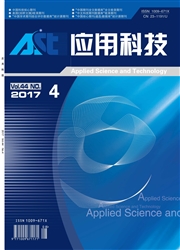

 中文摘要:
中文摘要:
提出朴素模糊描述逻辑理论框架,主要分为朴素隶属函数构造和基于模糊描述逻辑之上的朴素推理两个方面.朴素隶属函数构造的基本思想是简化模糊集合隶属度取值,并把模糊集作2种理解——即它的隶属函数或是元素隶属它的程度,或是元素聚合的标志性指标.并且当问题需要深化时,通过模糊集理论中的2型集或2级集进行提升,然后再化归为普通模糊集,借此拓广模糊集隶属度和(或者)产生新的模糊集.在推理方面,运用模糊集理论中“所有算子”,并不强调它们在逻辑上的一致性.最后以中医理论为例,说明朴素模糊描述逻辑在表达有别于西方自然科学范型的经验理论中的重要作用.
 英文摘要:
英文摘要:
This paper presents a theoretical framework of naive fuzzy description logic which mainly includes the construction of naive membership function and the naive reasoning based on fuzzy description logic. The basic idea of construction of naive membership function is to simplify the values of membership in fuzzy sets, and fuzzy sets are considered in two ways, i.e., their membership function refers to the degree of either the set membership or the symbolic index of the aggregation of elements. Besides, if problems need to be deepened, we improve the fuzzy set using the concept of type 2 or level 2 fuzzy sets in fuzzy set theory, and then transform it back to the ordinary fuzzy set. In this way we extend grades of membership in fuzzy sets and (or) come up with a new fuzzy set. In terms of naive reasoning, we use "all operators" in fuzzy set theory but do not emphasize their consistency in logic. Finally taking traditional Chinese medicine as an example, this paper illustrates that the naive fuzzy description logic plays an important role in expressing empirical theory which is different from Western scientific paradigm.
 同期刊论文项目
同期刊论文项目
 同项目期刊论文
同项目期刊论文
 期刊信息
期刊信息
